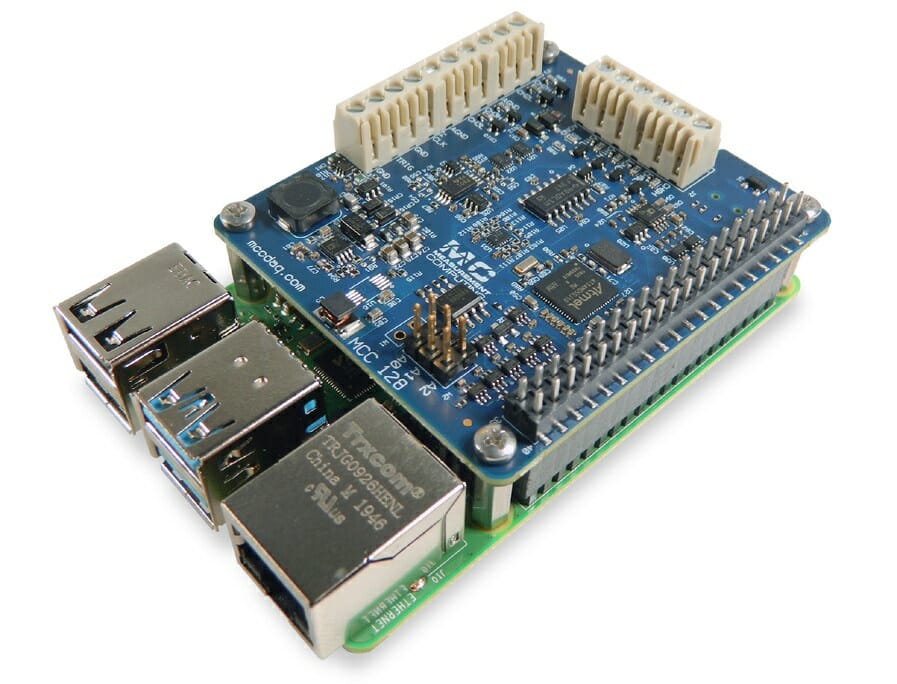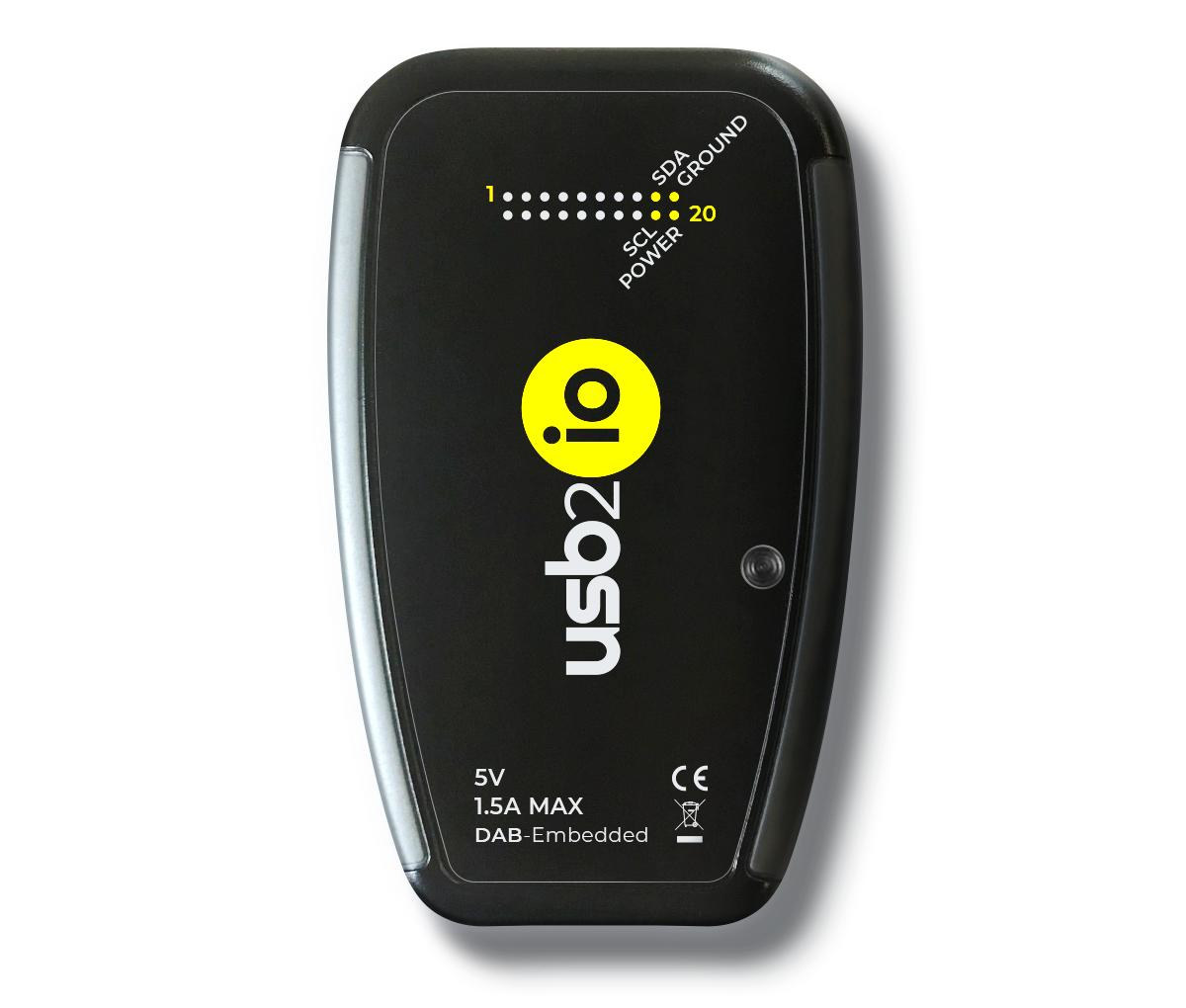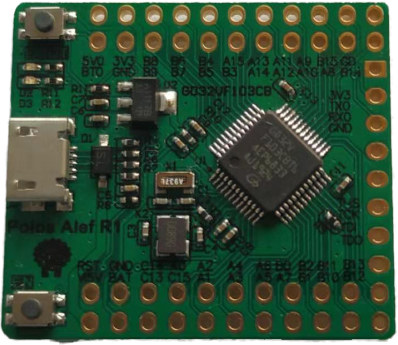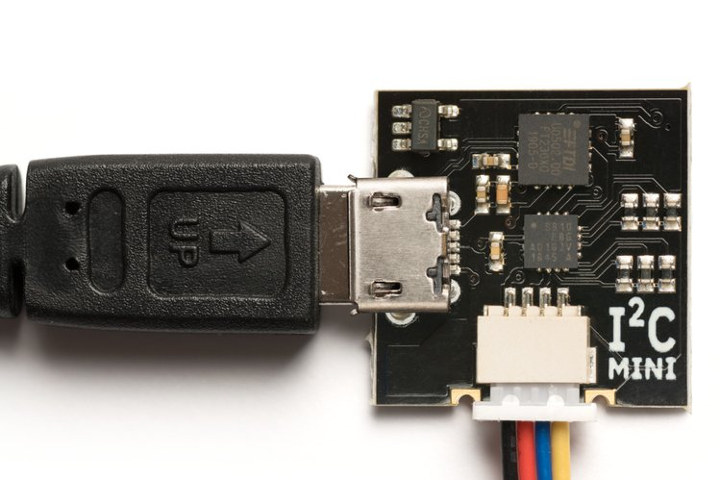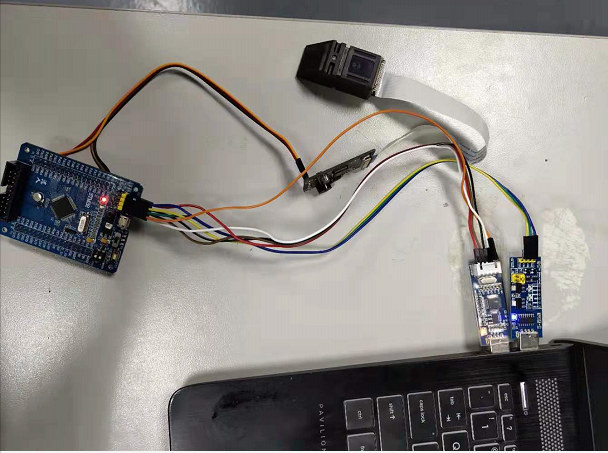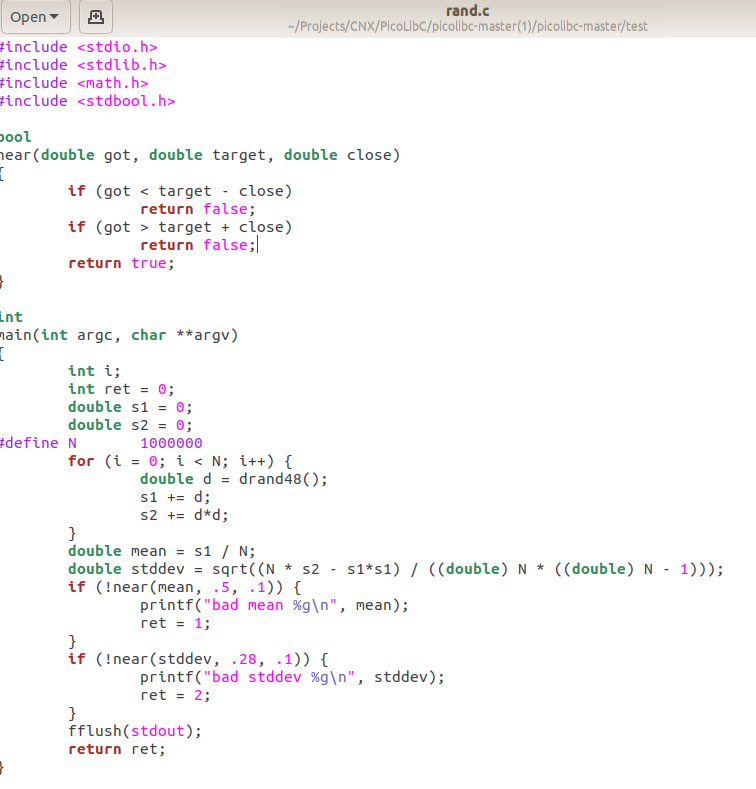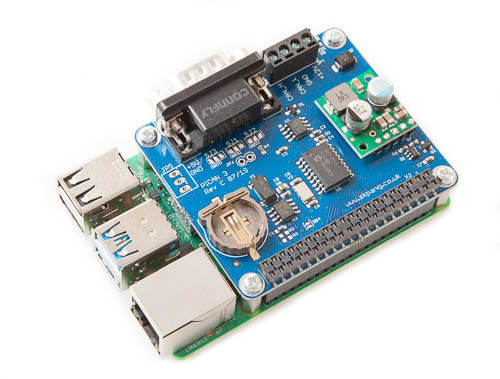MCC has launched the MCC 128 voltage measurement DAQ HAT for Raspberry Pi for data acquisition and data logging systems. It includes 8 analog inputs with 16-bit resolution for a range of -10V to +10 V at the data rate of 100 kS/s. This data rate can be increased by stacking up to 8 HATs for 64 channels of data which can produce a faster data rate up to 320 kS/s. The MCC 128 DAQ HAT is compatible with all Raspberry Pi models with the 40-pin GPIO header, excluding the original Pi 1 A or B with the 26-pin header. It is recommended to use the SPI interface for connecting LCD displays using the GPIO header. The configuration parameters of the board are stored in the EEPROM to allow automatic set up of GPIO pins to Raspberry Pi after the connection of the device. Key Features of MCC 128 DAQ […]
USB2IO high-speed interface explorer tool combines Intel Cyclone 10 FPGA and STM32H7 MCU
In the second part of 2020, we’ve seen a fair amount of USB debugging tools for electronics designers and hardware hackers including the Glasgow Interface explorer with an ICE40 FPGA. But if you need even more flexibility or higher I/O speeds (up to 300 MHz), DAB Embedded USB2IO interface explorer should help thanks to the combination of an STMicro STM32H7 MCU and an Intel Cyclone 10 FPGA. USB2IO interface explorer hardware specifications: MCU – STMicro STM32H743 Arm Cortex-M7 @ 480MHz CPU clock An external 64MB QSPI flash for extra FPGA code storage; FPGA – Intel Cyclone 10LP (10CL040) with 40k logic elements, 1,134 Mbit embedded memory, 126 DSP blocks External memory – 32MB SDRAM for MCU and FPGA (64MB in total) Storage – 64MB QSPI for connected to MCU for FPGA code storage I/Os via 20-pin external header/connector 16 x GPIO mode (single-ended), 8x LVDS pair mode or a mix […]
Polos GD32V Alef is a Tiny RISC-V MCU Board Selling for $3
We first found out about GigaDevice GD32V 32-bit RISC-V MCU last summer, as an update/alternative to the earlier STM32 compatible GD32 Arm Cortex-M3 microcontroller from the company with higher performance and lower power consumption, while keeping the price identical. The first low-cost GD32V development board we covered was Longan Nano going for $5 with an OLED display and an acrylic case. If you don’t need either or want to access all pins from the 48-pin MCU, you can now order an even cheaper GD32V RISC-V MCU board with Polos GD32V Alef going for $2.99 on Analoglamb website. Polos GD32V Alef board specifications: MCU – Gigadevice GD32VF103CBT6 32-bit RISC-V (rv32imac) microcontroller @ 108 MHz with 128KB Flash, 32KB SRAM USB – 1x micro USB OTG port for power and programming Expansion – 52 through holes (2.54mm pitch) exposing all pins from the MCU including 3x USART, 2x I2C, 3x SPI, 2x […]
I2CMini is tiny USB to I2C Bridge for your PC or SBC (Crowdfunding)
Last year, we wrote about Excamera Labs SPIDriver tool to control and monitor SPI devices from your computer, but this year the company launched another similar product for I2C: I2CDriver. Both debugging tools show signals and information on a small display, but if all you want to do os to control I2C devices from your computer or isolated from an SBC, Excamera Labs has now come up with the tiny I2CMini USB to I2C bridge board. I2CMini key features & specifications: Fast transfer – sustained I²C transfers at 400 and 100 kHz I²C pullups – programmable I²C pullup resistors, with automatic tuning Dual I²C ports – a castellated 0.1″ header, plus a Qwiic standard connector Jumpers – Color-coded Sparkfun Qwiic jumper included for instant connection 3.3 V output: output levels are 3.3 V, all are 5 V tolerant Supports all I²C features – 7- and 10-bit I²C addressing, clock stretching, […]
Fingerprint Identification with STM32 MCU and Serial TFT LCD Module
CNXSoft: This is a guest post by Amy working for STONE Technology, a company specializing in industrial liquid crystal display modules This month, I planned to develop a fingerprint door lock project. When I selected the fingerprint identification module, the project was suspended. However, I thought that since the fingerprint identification module had been purchased, I would simply test it. This fingerprint module can be easily purchased online, connected over UART to an MCU board. It supports fingerprint scanning, fingerprint entry, fingerprint comparison, and fingerprint deletion. Since the fingerprint module manufacturer provides a demo program for STM32F103 series microcontrollers, I bought a small development board based on STM32F103C8T6. The demo program of the fingerprint module uses LED lights to prompt the user to enter the fingerprint and compare the status (success or failure). But I want to use an LCD display, so I chose a 480×272 resolution serial LCD display. […]
PicoLibC is a Lightweight C library for Embedded Systems
Well-known developer, Keith Packard has recently announced the launch of “picolibc” through his blog. Picolibc is a C Library for embedded systems which is suitable for small micro-controllers, and this standard C library API’s allows to run even in low memory (RAM) devices. This is an upgraded version of “newlib-nano” with few interesting changes which includes replacement of “stdio” lib with ATMEL-specific printf code adopted from avrlibc. As part of this library, Keith also launched picocrt, which is responsible for initializing memory and invoking various constructors before calling its own C program, the main function. Features picolibc is a revised version of newlibc, without full-fledged stdio lib and uses lightweight stdio lib from avrlibc, which is more suitable to low memory embedded devices. Meson build-system eases the build process of picolibc source tree for various target platform and hardware. Updated the math test suite to use Glibc as a reference […]
PiCAN3 Board for the Raspberry Pi 4 adds CAN Capabilities plus a Real-Time Clock
Copperhill Technologies has recently announced the release of its PiCAN3 CAN-Bus Board for the Raspberry Pi 4. The PiCAN3 adds Controller Area Network capabilities plus a real-time clock to the new Raspberry Pi SBC. The Controller Area Network (CAN Bus) is a robust and common industrial communication bus used mostly in the automotive industry. CAN supports long travel distance, medium communication speed, and quite reliable. One of the most significant advantage with CAN-BUS is that it connects any number of ECUs (or microcontrollers) in your car through the two-wire bus, CAN High and CAN Low, reducing the weight of wires that could be gained by using point-to-point communication between ECUs. CAN bus is one of five protocols used in the on-board diagnostics (c)-II vehicle diagnostics standard. Although it is popular in the automotive industry, the Raspberry Pi doesn’t provide an off the shelf support for working with CAN-BUS. Users interested in trying out […]
Linaro Connect San Diego 2019 Schedule – IoT, AI, Optimizations, Compilers and More
Linaro has recently released the full schedule of Linaro Connect San Diego 2019 that will take place on September 23-27. Even if you can’t attend, it’s always interested to check out the schedule to find out what interesting work is done on Arm Linux, Zephyr OS, and so on. So I’ve created my own virtual schedule with some of the most relevant and interesting sessions of the five-day event. Monday, September 23 14:00 – 14:25 – SAN19-101 Thermal Governors: How to pick the right one by Keerthy Jagadeesh, Software Engineer, Texas Instruments With higher Gigahertz and multiple cores packed in a SoC the need for thermal management for Arm based SoCs gets more and more critical. Thermal governors that define the policy for thermal management play a pivotal role in ensuring thermal safety of the device. Choosing the right one ensures the device performs optimally with in the thermal budget. […]


